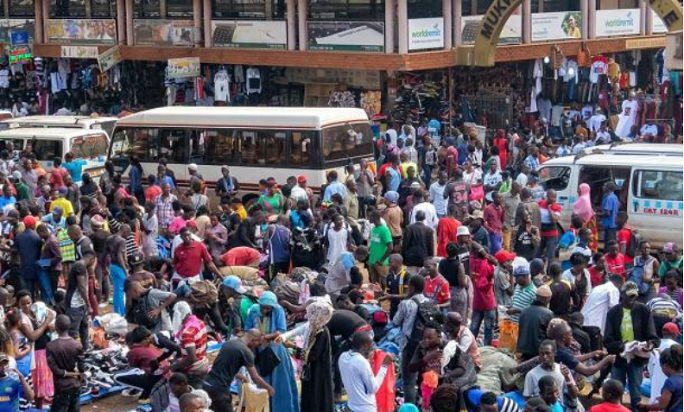Many traders and vendors in downtown Kampala have no idea about the disease, how it is spread and how they can protect themselves
It is business as usual in Kampala Central business district despite the confirmed Ebola outbreak in Mubende District, which is about 150km away. On Tuesday, the Ministry of Health announced that the samples that were picked from a 24-year-old man who died in Mubende Regional Referral Hospital had tested positive for the Sudan variant of Ebola.
The Ministry urged the general public to observe standard operating procedures by washing hands or sanitizing and avoiding close body contact since the virus can spread through bodily fluids like blood, sweat, and saliva. Kampala, being a capital city and a major business center attracts people from different parts of the country.
In fact, while its night population is estimated at two million people, commuters to Kampala are over three million daily. The fact that Kampala attracts many people, and that the Ministry of Health urged standard operating procedures has not changed how people are conducting business downtown.
The streets are filled with people, and markets operate normally without any hand washing facility and enforcement from authorities. The same is seen in taxi parks with operators going on with business as usual.
A number of them say they are unaware of the outbreak while others don’t see it as a threat considering that the confirmed case was in Mubende district.
At the Mityana-Mubende stage in the new taxi park, drivers and conductors offload and load passengers normally, grabbing the hand of some of their prospective passengers to lure them to board taxis.
Samuel Walulya Akalyamaggwa, a driver at the stage, says that they don’t have any knowledge about the disease and have not taken any measures to protect themselves. He says they are yet to be sensitized by the authorities in Kampala on how to deal with the situation.
Another driver, who didn’t want to be named or recorded doubts that there is an Ebola Outbreak. One of his destinations in Mubende is Madudu and Kikandwa, places he says are quite unhygienic and a recipe for diseases like cholera, hence the thinking that there could be a cholera outbreak.
Others say that if indeed there is an Ebola outbreak, the government should limit the movement of people to and from Madudu to minimize interaction with other members of the public.
Simon Kasyate, the Spokesperson of Kampala Capital City Authority (KCCA) says that the Authority is on high alert to ensure that any emergencies are handled promptly.
He says the Authority has a plan that majors on the treatment of confirmed cases, risk communication, coordination, and provision of required logistics like ambulances, and personal protective gear to health workers and their field surveillance teams.
He says in all this, they shall be coordinating both internally as KCCA and with the Ministry of Health among other relevant agencies.
Kasyate says that they shall use three isolation centers, which are located at China-Uganda friendship Hospital, Mulago National Referal Hospital, and Entebbe Hospital to deal with cases of Ebola in the unfortunate event that a case is reported in the City.
These hospitals were used at the peak of COVID-19 and Kasyate says there still is Infrastructure that can be used to respond to any confirmed cases of Ebola. He adds that health workers at their various health facilities have been put on alert to carefully receive patients and immediately refer any suspected Ebola cases to Mulago, Naguru, or Entebbe Hospitals.
Regarding sensitization, Kasyate says that they are using their emergency response and surveillance unit to respond to any reports of suspected cases in communities.
He also says that they are coordinating with the Ministry of Health, surveillance unit, and local KCCA offices in markets, parks, and local governments to ensure there is effective communication and response to suspected or confirmed Ebola cases.
The same offices are also being used to inform the public on how to protect themselves from contaminating the virus and how to spot a suspected case that should be reported.
Although KCCA says that they are prepared and sent teams on the ground, there is no semblance of KCCA’s presence downtown. Taxi operators and other city dwellers are yet to observe any efforts by KCCA to sensitize them or prepare them for any eventualities.
Ebola victims present with symptoms such as fatigue, fever, chest pain, diarrhea, and unexplained bleeding from different openings of the body.
-URN





